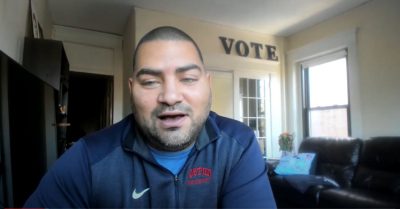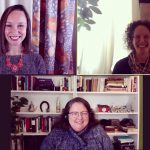Students considering future job prospects may make it their priority to find a purpose-driven career — one that aligns with their values and motivations. These kinds of careers can increase employee engagement by allowing students to work toward a personally useful goal.

Boston University Alumni and Friends hosted “The Power of Purpose: Move Your Organization and Your Career Forward” Wednesday, where a virtual panel of professionals discussed their experiences as communicators who have successfully furthered their work in corporate, government or nonprofit organizations.
Anne Danehy, a senior lecturer in the College of Communication, moderated the event, which was sponsored by COM’s Diversity, Equity and Inclusion Committee. In an interview, Danehy said the panel was inspired by students wanting to make an impact but not knowing exactly how to go about looking for those jobs.
“We started thinking,” Danehy said, “‘You know what, there’s a lot of different fields in advertising, public relations or any communication field where you can be making a difference.’”
COM Dean Mariette DiChristina, who introduced the discussion, said communicators hold “tremendous power” in shaping the way people think and act.
“Communication that’s animated by a deep commitment to important causes,” DiChristina said during the event, “can multiply our impact as communicators and help us to help the world change in positive ways.”
After the opening remarks, the panelists discussed the purposes that have played a central role in each person’s career.
Raul Fernandez, associate dean for Equity, Diversity and Inclusion at BU’s Wheelock College of Education and Human Development, said he is driven to help advance the rights of people who have been under-prioritized by decision makers.
“If you feel that kind of drive,” Fernandez said, “it’s certainly something that you should follow.”
After hearing about each panelists’ individual experiences finding purpose in their careers, Danehy said there is great variety in how communicators can put their skills to use.
“The field of communication is very broad,” Danehy said during the panel. “You can have a purpose-driven career, and it can be in a corporate role, it can be in a nonprofit, it can be in an educational setting and it can be working in your own firm.”
Questrom School of Business alumna Sarah D’Souza, the senior director of corporate communications at Vertex Pharmaceuticals, said she was proud of the way Vertex handled a recent series of virtual events.
The company typically hosts large annual volunteering efforts, but due to the pandemic, D’Souza and other executives adapted by planning smaller events across the globe with different organizations to continue that tradition.
“A lot of planning, a lot of behind the scenes logistics went into play, but we were really proud of the impact we made and that we pulled it off,” D’Souza said. “More importantly, it was a really great morale booster for our employees, who are all working remotely.”
Panelists then spoke about how they obtain the resources their organization needs, pieces of advice they would give their younger selves and what inspires them to do their work each day.
Matt Wilder, a communications and media strategist at Wilder Strategies, said his advice for future communicators is to overcome the fear of reaching out to people to build professional connections.
“You have nothing to lose by reaching out to people who are doing work that you are interested in or that you admire,” Wilder said during the panel. “More often than not, you’ll be surprised that they’ll try and find a way to include you.”
Another panelist, Tricia Raynard, is the executive director of Empower Peace, an organization that hosts programs to empower and support students. Raynard said it’s important for communicators to be honest with students about professional experiences and to share their knowledge.
“A lot of people who have been doing their thing for so many years didn’t start off by having this big plan, this roadmap,” Raynard said in an interview. “Sometimes we have a plan, but then we have to veer off and take different direction.”
Raynard also said she enjoyed being able to connect with and learn from others on the panel, despite the restrictions on communication during a pandemic.
“You can have some fun with it and learn from each other,” Raynard said. “My favorite thing is to connect with people who are passionate about what they do, sharing their experiences, and you learn from them as well.”














